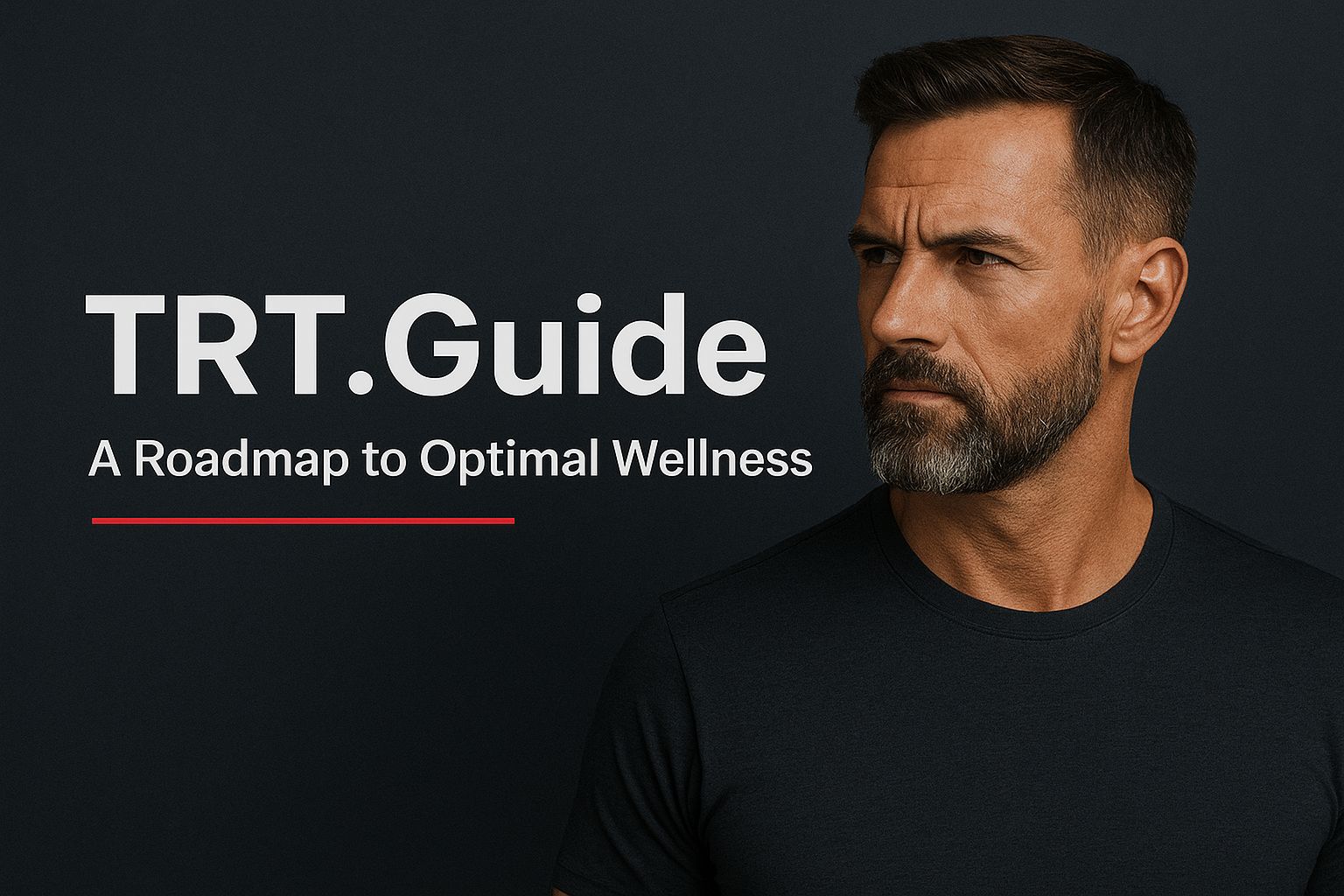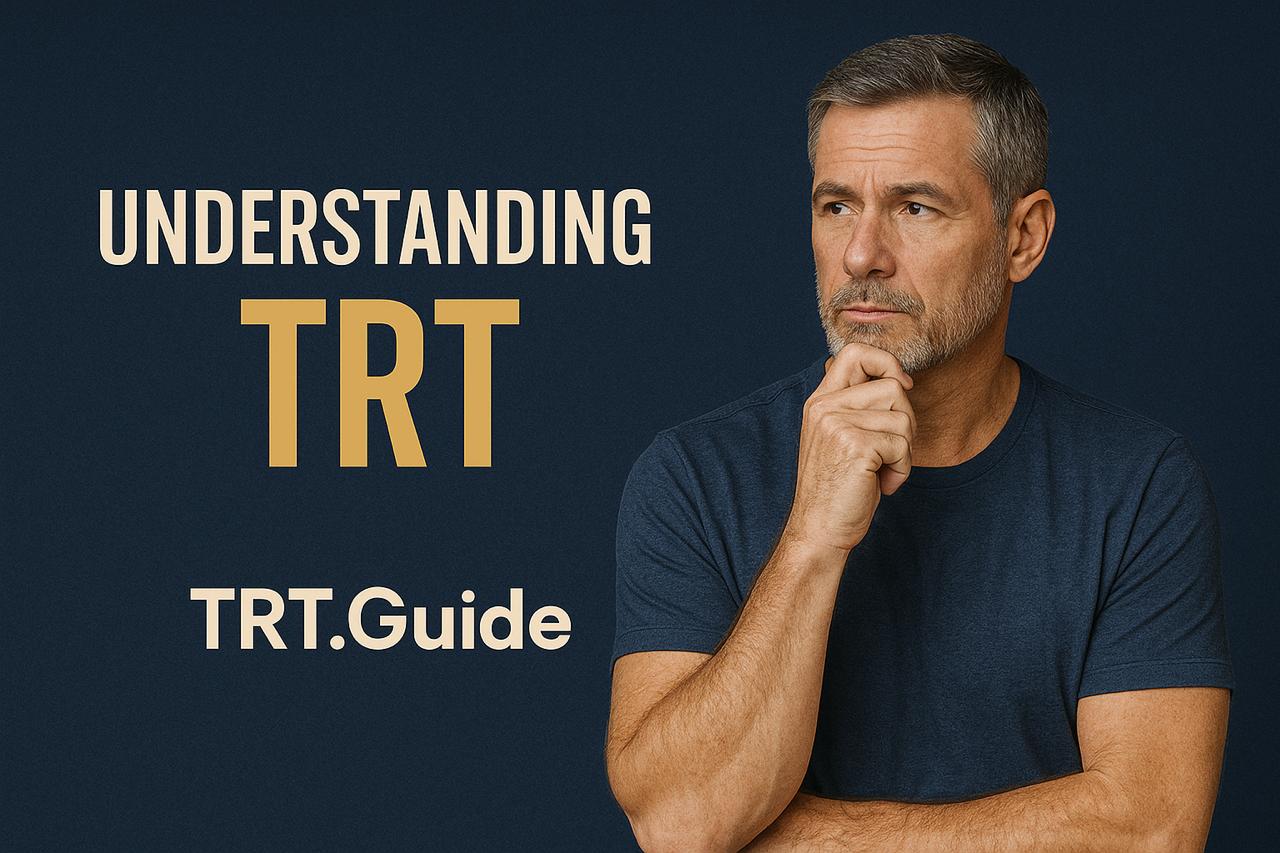Millions of people suffer from hypothyroidism globally. The condition usually results in chronic fatigue, weight gain, and mood changes. It occurs that men with this disease may suffer a low testosterone level. Consequently, the resulting hormonal dysbalance becomes self-reinforcing, and it is difficult to break this circle of problems with the help of external means. In case you feel the symptoms, one of the ways to improve your condition is by understanding the link between the therapy and the corresponding hormone.
Testosterone replacement treatment ranks among the most efficient solutions for symptoms of low testosterone and it is particularly promising for people with hypothyroidism. In order to address the problems of both hormones at the same time, you could definitely solve the issue of energy deficit, mood swings, and physical vitality. Let’s find out more about how these two conditions intertwine and what measures we can take to restore our former strength.
Overview of Hypothyroidism
It is a condition in which the thyroid gland is sluggish in producing its hormones, which can cause a lot of trouble. Among these are reasons for feeling less active and lacking in energy, being a hindrance to shedding weight, and hormonal imbalances, which are the most frequent ones encountered by men.
Causes of Hypothyroidism
Hypothyroidism can result from a multitude of reasons such as:
- Autoimmune Disorders: Diseases like Hashimoto’s thyroiditis for example are one of those where the immune system turns on the thyroid tissue that the latter eventually gave up the ghost and synthesizes less amount of hormones.
- Iodine Deficiency: Lower iodine intake results in less production of thyroid hormone, causing hypothyroidism to occur as a result of impairing the thyroid gland’s function.
- Medications: A number of drugs especially lithium and some anti-thyroid drugs have the ability to impair thyroid hormones.
- Thyroid Surgery: When removing or radiating the thyroid gland as a treatment option for thyroid cancer, the remaining cells may not be able to maintain a functional thyroid hormone balance.
- Radiation Therapy: Treatment targeted at head and neck cancers by radiation can be a trigger for the injury of the thyroid gland.
- Congenital Conditions: Thyroid tissue that is not functional or glands that are missing are found in some people right from their birth.
Symptoms and Diagnosis
Hypothyroidism makes itself known through a range of symptoms such as:
- Fatigue: Fatigue that doesn’t go away. It affects daily activities and the level o f energy, in general, is diminished.
- Weight Gain: Metabolism is too slow and it is what leads to weight gain when it is not necessary.
- Depression: One can have extreme changes in moods, including many times when they have significant emotional shifts.
- Cold Intolerance: Lower metabolism resulting in the body being more sensitive to cold temperatures.
- Dry Skin and Hair: The condition of the skin and hair might be deteriorated, i.e., skin and hair may become brittle or rough due to lack of moisture.
- TSH Testing: Measurement of the thyroid-stimulating hormone is done on a blood sample to evaluate thyroid function.
- Free T4 Levels: Checking the levels of thyroxine is a good indicator of hormone availability.
- Antibody Tests: The presence of antibodies could show autoimmune causes, for instance, Hashimoto’s thyroiditis.
Testosterone Replacement Therapy
Men with hypothyroidism, especially those experiencing low testosterone levels, can consider testosterone replacement therapy (TRT) as a way of boosting energy and thus improving their overall health. This can, indeed, be an energy booster for men.
Benefits of Testosterone Replacement Therapy
- Increased Energy Levels: TRT is a solution to fatigue which is the main indication of low testosterone and hypothyroidism. Adequate energy is related to smooth daily routines.
- Positive Disposition: Many men who have gone for testosterone replacement therapy (TRT) testify to the fact that their mood swings have lessened and their depression symptoms have decreased. This emotional uplift has a lot of positive effects on their mental health.
- Increased Lean Muscle Mass: The existence of testosterone is very vital for the development of muscles in the human body. Men’s testosterone replacement therapy (TRT) is effective in ensuring that their muscle mass has been increased thus gaining more strength. This shade of human race is the least active, hence, it is the most benefitted.
- Regulated Weight: If the therapy was turned into reality, then physical metabolism would be given the right push. Testosterone increase is directly proportional to fat reduction. Therefore, it is possible for a person to achieve easier weight management.
- Sexual Life Improvement: There is a direct connection between low levels of the male hormone and sexual desire and performance. TRT is a procedure that is usually accompanied by an improvement in the desire for sex and a better sexual performance on the part of the patient.
- Better Bone Health: Testosterone provides a unique contribution to the health of bones. The treatment of testosterone replacement can assist in maintaining or increasing the strength of bones, thus reducing the chances of getting osteoporosis.
- Cardiac Issues: There is some evidence that ties TRT to a higher possibility of heart diseases such as a heart attack or a stroke. Heart health has to be monitored throughout the whole treatment period to also ensure the safety of the patient.
- Elevation of Estrogen: An outcome of TRT is the high production of estrogen, which characteristically could lead to the growth of breast tissues in men, a condition known as gynecomastia. Regular checks are a must in the management of hormone levels to avoid the occurrence of such a scenario.
- Frequent Apnea Episodes: The replacement of the hormone in males may contribute to the increase in the severity of the already existing sleep apnea condition. This is why a doctor needs to evaluate those symptoms of sleep apnea that a person manifests before starting any form of therapy.
- Epidermal Irritation: The injection or the transdermal application of the hormone may result in skin rash in some patients. Discuss the various options with your healthcare professional to determine the most appropriate method.
- Prostate Issues: Hormone Replacement Therapy can result in the growth of the prostate gland. Regular check-ups are necessary to detect early signs of problems in the prostate.
- Mood Changes: Testosterone therapy may be effective in managing the mood of a patient but using an overabundance of testosterone may make the patient aggressive or irritable. Patients must be closely observed during the entire treatment process.
The Connection Between Hypothyroidism and Testosterone
The understanding of the relationship between low thyroid and low testosterone is imperative in ensuring proper care of one’s overall health.
Impact of Hypothyroidism on Testosterone Levels
Hypothyroidism is a condition that induces a decrease in the testosterone level in the male body. The reason for this hormone problem is the inability of the thyroid gland to secrete hormones resulting in hormonal imbalance and, therefore, less testosterone synthesis.
A review reports that men with untreated hypothyroidism are likely to experience a drop in the testosterone levels due to the symptoms like fatigue, low libido, and concentration difficulty. Furthermore, the article in the Journal of Clinical Endocrinology & Metabolism presents a study where onward thyroid hormone therapy and testosterone replacement therapy both raised to a much higher degree the testosterone levels in both male patients suffering from these diseases. As for hypothyroidism, its successful treatment can lead to the re-establishment of testosterone levels, thereby removing symptoms of low testosterone.
Effects of Testosterone on Thyroid Function
Oftentimes, testosterone exerts its effects on thyroid function. Normal levels of the testosterone hormone facilitate the generation and conversion of thyroid hormones. The findings suggest that the presence of testosterone in the system boosts the actions of the enzymes in charge of thyroid hormone synthesis. Male individuals who have insufficient testosterone might have their thyroid affected, leading to such symptoms as tiredness and cold intolerance. It is proposed in the Thyroid periodical that testosterone therapy can have a positive effect on thyroid hormone levels in hypogonadal men. In turn, this augmentation will result in better thyroid function, henceforth forming a beneficial cycle effect in the endocrine system.
Treatment Considerations
Hypothyroidism and testosterone replacement therapy (TRT) treatment must be deliberated and methodically dealt with. A good mixture of such therapies could be of great help to your entire health.
Ways to Merge Treatments
- See the Doctor: It is a must to have a conversation first with a qualified doctor regarding your treatment processes. These specialists are capable of helping you decide on what to do concerning your life or your health condition.
- Initiate with Thyroid Medication: It is important that the first step in the treatment of an underactive thyroid is to stabilize the hormone levels before starting the testosterone treatment. The optimal level of thyroid hormones promotes the effect of the testosterone therapy treatment.
- Pick the Best TRT Method: The methods for providing testosterone range from the typical use of injections, patches, and topical gels. Your healthcare provider can advise and direct you to the most suitable method according to your way of living and preferences.
- Time of Day: Simultaneous administration of both the thyroid and testosterone treatments will in the long run optimize the hormonal balance of the patient. Valuable findings are available which underscore the importance of hypothyroidism therapy for a successful testosterone treatment result.
- Check for Multiple Treatments: Look out for the manner in which thyroxine medication and testosterone replacement therapy can interact. The correct execution of this combination forces one to modify doses regularly to reduce adverse effects.
Checking and Correction
- Blood Tests By Health Workers: You need to make sure that your levels of thyroid hormones (TSH, T4) and the level of your testosterone are always in the required range by having periodic blood tests done regularly. This regular testing is necessary for both the treatment to be controlled.
- Complete Symptom Journal: Write all symptoms from both your conditions in a journal. Health professionals can modify a treatment regimen by noting changes in your energy, mood, weight, and libido.
- Regulate Never Dozes: Be ready to have your dosages regulated. Your thyroid hormone or testosterone replacement therapy might need adjustment according to your improvement or no positive effect.
- Look Out for Adverse Symptoms: The exertion of testosterone through therapy can lead to side effects. Apart from that, sudden mood swings and new heart-related problems are also the examples of these symptoms. In knowing these symptoms, inform your doctor as soon as possible.
- Take Regular Check-ups: A health provider who is always there when required for frequent or daily contact procedures is the best choice in order to get the quickest and most proper treatment and maintain hormone homeostasis for high energy levels.
Conclusion
Every aspect of your life depends on hypothyroidism and testosterone therapy management. If you acknowledge the way these two diseases interact with your body, your well-being will most probably thrive. Feeling some symptoms you can match with hypogonadism means that therapy can have a big influence on your condition.
You are going to jump and yo-yo between highs and lows if you get testes symptoms while your testosterone levels are low and you start treatment without medical supervision. Meeting a specialist is crucial and regular checks of hormone levels ensure you’re keeping a balance of the thyroid and testosterone. Before you add TRT to the treatment plan, you have to ensure the right regulation of your thyroid medicine.
Frequent Ask Questions
What is meant by hypothyroidism?
A definition of hypothyroidism is a person who suffers from this medical condition where the thyroid gland is not producing enough hormones. The problem of hypothyroidism often displays various symptoms in the patient like feeling tired all the time, gaining more and more weight for no reason, always having a bad mood, etc. It is a condition that can definitely wreak havoc on one’s health and overall body’s hormone balance.
Are there any symptoms of hypothyroidism that are obvious in men?
Essentially, men have such symptoms of hypothyroidism til fatigue that does not go away, the decrease in their metabolic rate and that resulting in putting on more weight, mood fluctuations such as chronic depression, cold intolerance, aching, stiff, and dry skin and hair of bad quality. The symptoms can be pretty destructive to not only the individual but also their lives and the health of those around them.
In what manner should the low thyroid level cause the decrease of testosterone in males?
The relation between hypothyroidism and low testosterone equals the absence of the required quantity of hormones in the latter and a general imbalance of them in the body. Changing untreated hypothyroidism to relieve symptoms and increase testosterone levels is among the tactics to be utilized. The latter, for example, includes improvement in one’s mood, reduction of fatigue, and an increased sexual drive.
What does testosterone replacement therapy (TRT) mean?
Testosterone replacement therapy is a medical regimen intended for males with low testosterone levels. TRT might possibly provide relief from symptoms of low energy, low mood, lack of muscle mass, sexual health problems, and reduced weight to patients. The necessity for regular medical supervision to ensure safety is always present.
Is there the slightest chance that testosterone replacement therapy may result in any health problems?
The application of TRT without the advice of a general practitioner can decrease, rather than increase, the overall health of a man. The risk of side effects associated with TRT includes cardiovascular disorders, hormonal imbalances, worsening of sleep apnea, skin problems, prostate issues, and mood disorders. Thus, professional consultation is a mandatory safety measure.






